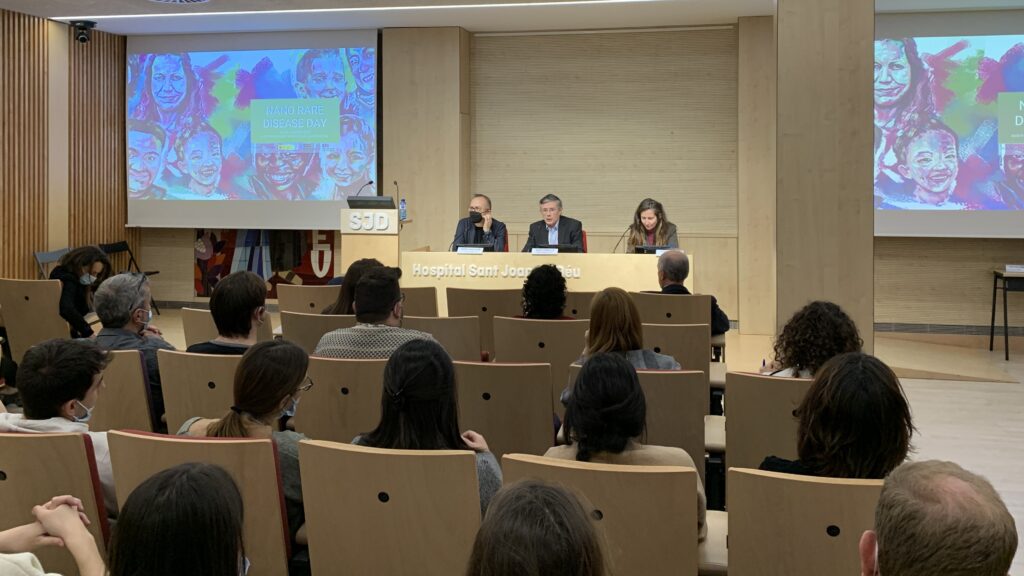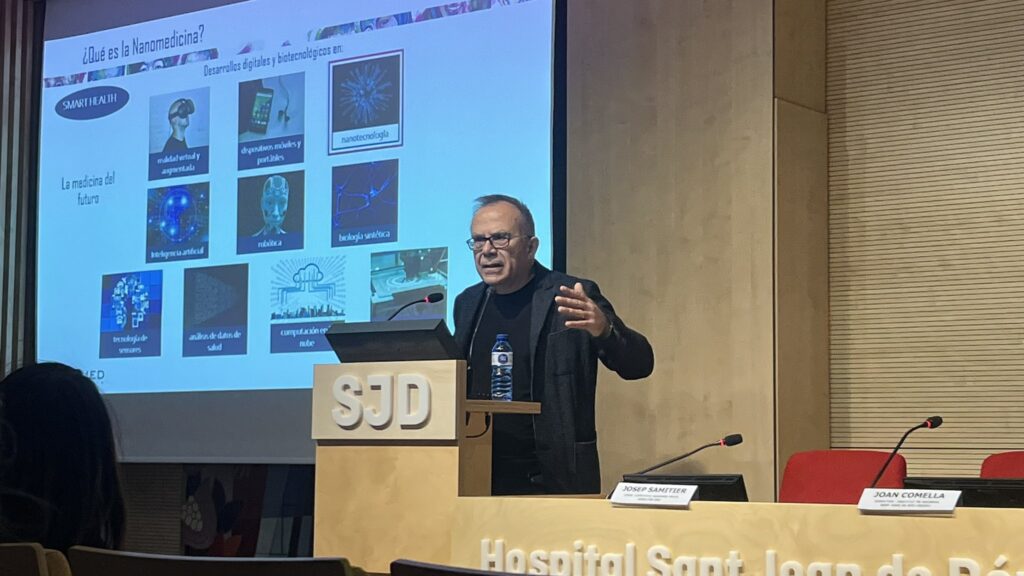Yesterday, experts in Nanomedicine from different fields gathered for the fourth consecutive year at the Nano Rare Diseases Day. This event is co-organized by the NANOMED Spain platform, coordinated by IBEC, and SJD Barcelona Children’s Hospital, where the latest advances in nanomedicine for diagnosing and treating rare diseases are exposed.

Yesterday, February 28, took place the Nano Rare Diseases Day, an event organized within the framework of World Rare Disease Day where the latest innovations in Nanomedicine were announced. During the conference, co-organized by the NANOMED Spain platform, which is coordinated by IBEC, and the SJD Barcelona Children’s Hospital, experts from different fields presented the latest advances in nanomedicine for the diagnosis and treatment of rare diseases.
The event gathered around 90 people in person and online and welcomed the vision of the various actors involved: research, business, clinical practice, health authorities, patients, etc. More specifically, this year, the speakers have focused on explaining the latest advances in Cystic Fibrosis and lysosomal storage diseases, particularly the Sanfilippo Syndrome.
The conference was opened by Joan Comella, director of the Sant Joan de Déu Research Institute (IRSJD), and Josep Samitier, director of IBEC and scientific coordinator of the NANOMED Spain platform.
In Samitier’s words: “Today, the day of rare diseases, is an opportunity to see how science, knowledge, and patients get involved in understanding these diseases. It is a day with several voices to raise awareness on the importance of investing in research, which allows us to move forward.”
The first talk was also given by Josep Samitier, who spoke about the role of nanomedicine in the treatment and diagnosis of rare diseases. Nanotechnology is in the third position of the ranking of enabling technologies, which are technologies that increase the performance and capabilities of the user. The organs-on-a-chip and the “mini-organs” (or organoids), for example, are two of the many applications of nanomedicine. Both allow in vitro studies on pathologies and the effectiveness of drugs in a personalized way to the patient.

Other speakers participating in the conference were Janet Hoenicka from the Sant Joan de Déu Research Institute; J. Pablo Salvador from the Center for Biomedical Research in Network (CIBER-BBN) and the Institute of Advanced Chemistry of Catalonia (IQAC-CSIC); Maria del Mar O’Callaghan from the Sant Joan de Déu Research Institute; Ibane Abasolo from the Vall d’Hebron Research Institute (VHIR); Jordi Cruz from the MPS-LISOSOMALES Association; and Begoña Nafria Escalera from the Sant Joan de Déu Research Institute (IRSJD).
More information about the event on the NANOMED Spain website





